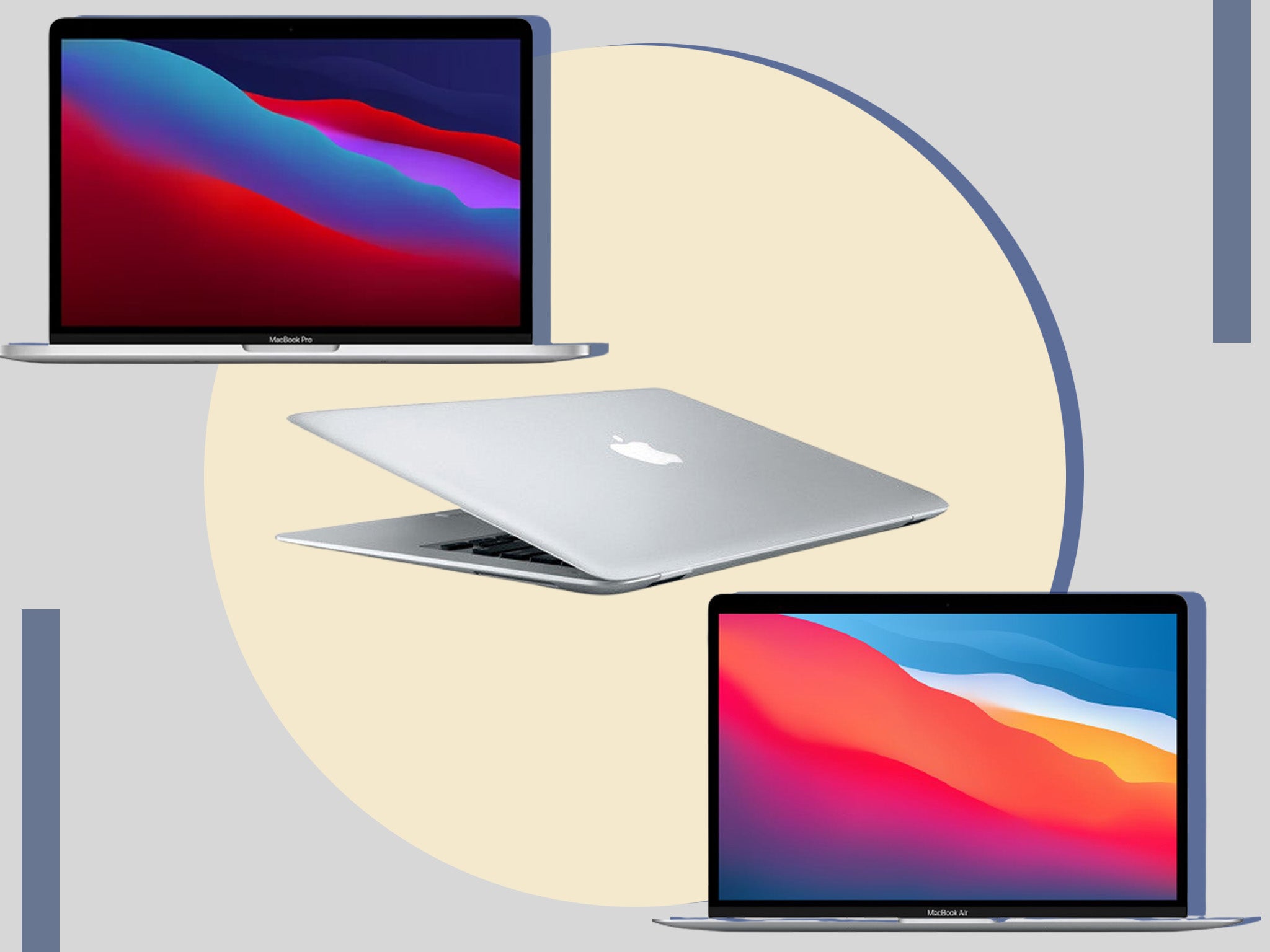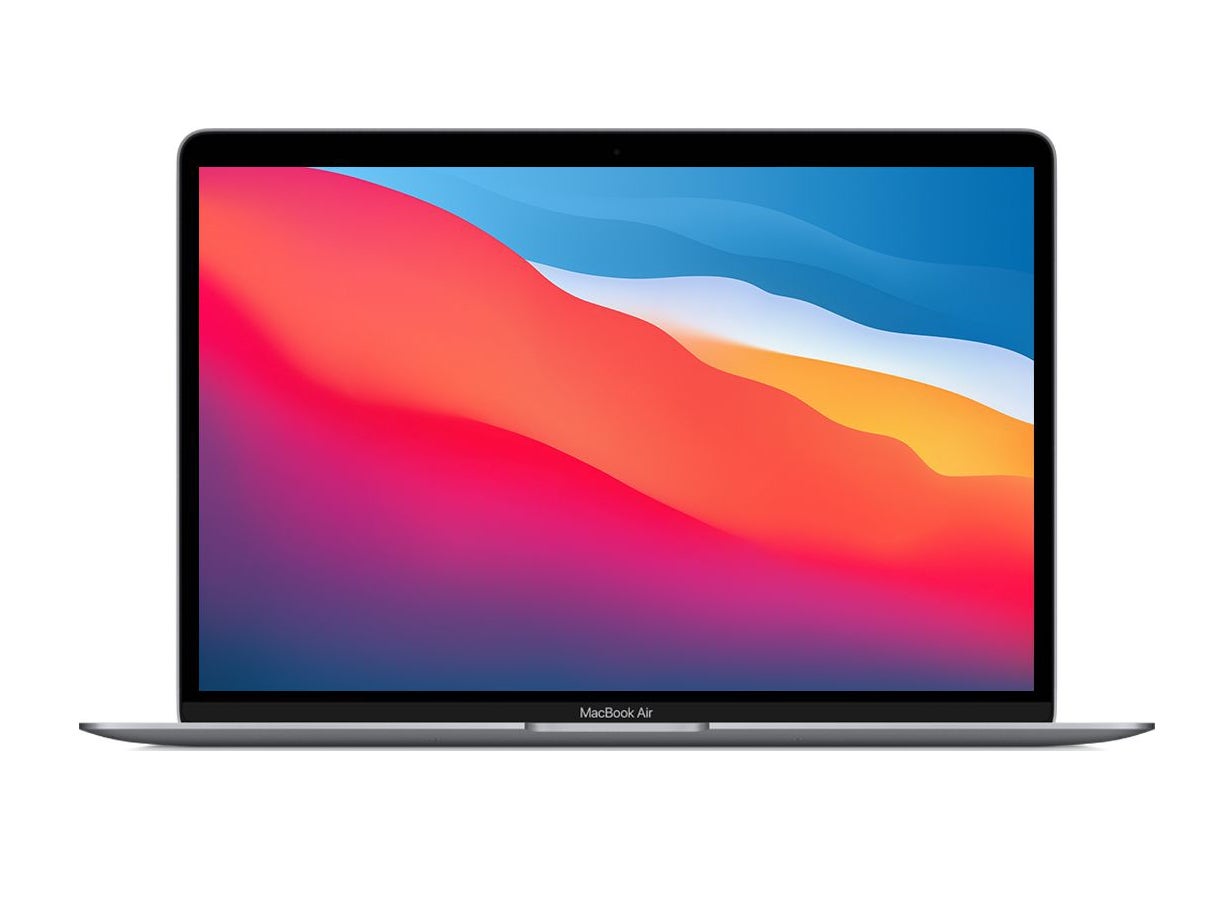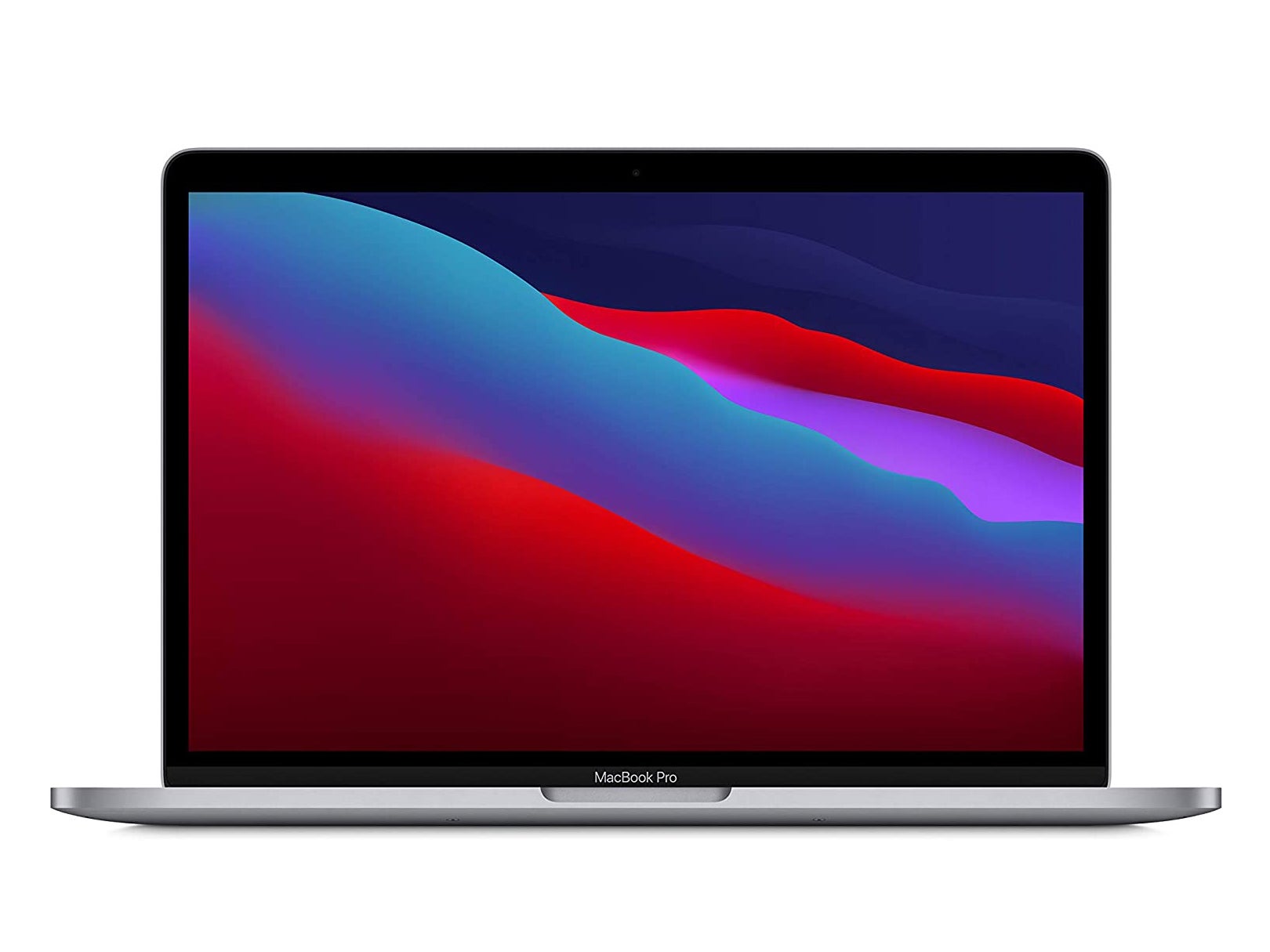MacBook buying guide 2021: Air or Pro? How to choose the best Apple laptop for you
If you’re bewildered by complicated spec charts, don’t worry – we got you

Your support helps us to tell the story
From reproductive rights to climate change to Big Tech, The Independent is on the ground when the story is developing. Whether it's investigating the financials of Elon Musk's pro-Trump PAC or producing our latest documentary, 'The A Word', which shines a light on the American women fighting for reproductive rights, we know how important it is to parse out the facts from the messaging.
At such a critical moment in US history, we need reporters on the ground. Your donation allows us to keep sending journalists to speak to both sides of the story.
The Independent is trusted by Americans across the entire political spectrum. And unlike many other quality news outlets, we choose not to lock Americans out of our reporting and analysis with paywalls. We believe quality journalism should be available to everyone, paid for by those who can afford it.
Your support makes all the difference.Apple's MacBook line-up has, in the recent past, been a tad confusing to shop.
There was a MacBook Air that was heavier than a MacBook, and there were a variety of different computers all called the same thing; sorting the differences between these models meant studying complicated spec charts.
Thankfully, things have been simplified. Now the main questions are: do you want an Air or Pro, and how big do you want it to be?
But complexities do remain. Apple now sells what can be boiled down to four computers. There’s a 13-inch MacBook Air, a 16-inch MacBook Pro, a 13-inch MacBook Pro with two ports, and another 13-inch MacBook Pro with four ports. (The latter two sound similar, and look almost identical, but are different in one profound way that we’ll get to later.)
Here’s how to choose between the four, and whether you should be buying a MacBook now at all.
Read more:
You can trust our independent round-ups. We may earn commission from some of the retailers, but we never allow this to influence selections. This revenue helps us to fund journalism across The Independent.
Apple MacBook Air: £999, Apple.com

Operating system: macOS Big Sur
Storage: 256GB or 512GB (£1,249, Apple.com)
RAM: 8GB
Processor: Apple M1
Display size: 13.3in
Touchscreen: No
The MacBook Air featured in our round-up of the best high-end laptops for great performance. Our tester said: “The MacBook Air is remarkably lightweight and slim, an effect made the more appealing thanks to a tapering design – at its thinnest point it’s 0.41cm thick. But the new version is the first to use Apple’s own silicon instead of an Intel processor. The M1 chip is breathtakingly fast.”
They added: “The processor is the real standout, though. It’s so strong that many who have previously sought out the pricier MacBook Pro will find this more than powerful enough for their needs. The extra power has not diminished the Air’s great battery life, however, as this model has six more hours’ usability than the previous model.”
Apple MacBook Pro 13in: £1,299, Apple.com

Operating system: macOS Big Sur
Storage: 256GB
RAM: 8GB
Processor: Apple M1
Display size: 13.3in
Touchscreen: No
The MacBook Pro also scored a place in our high-end laptop round-up. Our tester raved about the M1 chip, saying: “Like the MacBook Air, this laptop has the brand-new, super-fast Apple-made M1 chip at its centre.” But, as it’s the same as in the more affordable MacBook Air, why would you choose this model instead?
“For the most demanding users, there are benefits to the Pro,” they said. “Unlike the Air, there is a fan in this model, which means the fast performance can continue for even longer. Additionally, the entry-level Pro includes a slightly more powerful graphics chip.”
And there are further pluses. “The top row of function keys is replaced by a narrow touchscreen so the functions change according to whether you’re using a word processor or photo editor, for instance. Like the Air, the power button has a fingerprint sensor in it, the keyboard is supremely comfortable and the trackpad is huge and very responsive.”
M1 or not?
The chip at the core of your computer used to be a fairly uninteresting and unremarkable thing: hidden behind a sea of confusing and technical names, it was hard to know which was which, let alone which was better.
Apple changed all that late last year when they introduced the M1, the first chip it made for itself under a plan known as Apple silicon. Now, just like the iPhone and iPad, Apple's laptops are powered by Apple's own chips, and they will eventually all be that way.
The change from the old Intel chips to the new Apple ones was instant and undeniable. Battery life shot up – it's about twice what it was before – and performance was similarly, unbelievably better.
There are some reasons that the computer you buy might not be an M1-powered one. Apple introduced its own chips in its lower-end computers first, meaning that if you are looking for a more highly powered laptop, you'll have to go with an Intel one.
Read more: We’ve found the best Nintendo Switch and lite deals
In many ways, those cheaper computers beat their more expensive counterparts, but in others they still lose out. But in those instances it is about something other than the chip itself – there is not really any conceivable reason that you'd go with a non-M1 Mac, all other things being equal.
One thing not to worry about is compatibility: the new M1 computers are able to perfectly pretend to be an Intel computer, so all of your old software should work as normal.
M1 Air vs M1 Pro
For most people, the choice will come down to the two Apple silicon computers above: they are the 13-inch MacBook Air and the 13-inch MacBook Pro.
They are more similar than they are different. Both include the M1, both have the same amount of RAM (the computers’ short-term memory capacity which allows for speedy multi-tasking and more) in their base configurations and come with the same amount of storage. They also perform largely similarly. The differences come down to four things: the design, the Touch Bar, a fan, and the price.
The two designs are fairly well-known now, and Apple notably did nothing to change them even when it made such significant alterations to their insides. The Air comes in a thinner, smaller and lighter wedge shape, while the Pro is more squared off.
The Touch Bar is a small touchscreen at the top of the keyboard that is found in the Pro and can be used to make changes such as skipping between audio tracks or changing the keyboard brightness. Some people do like it, but many view it with something between apathy and contempt, and Apple has even been rumoured to be killing it off; you're not likely to miss it unless you're a major fan already.
Read more: AirPods Max vs AirPods Pro – should you buy Apple’s earbuds or headphones?
The fan is the least noticeable of the differences, but probably the most notable. It gives the computer extra "thermal capacity" – that is, it can run hotter for longer – which means that it won't have to throttle itself when doing things that might make it heat up. The fan is only likely to come on if you're doing intensive tasks that take a long time, but if you do use your laptop for those kinds of things, then the upgrade might be worth it.
All of those differences add up to about £300: the Air starts at £999, while the Pro costs £1,299. You'll likely know whether the extra cost is worth it for you. But it probably isn't – the Air is such a capable computer that it is hard to justify the extra £300 for relatively minimal and not necessarily entirely positive changes.
What about the others?
The other Apple laptops – the 13-inch MacBook Pro with four ports, and the 16-inch version – are starting to look somewhat past it. While they have both been introduced relatively recently, Apple has already confirmed that it will be moving all of its computers to Apple silicon, and so they are just left waiting for the update that will revolutionise those computers, too.
But the 16-inch MacBook Pro was only introduced at the end of 2019, and it was itself an astonishing development back then. It came with a vastly improved keyboard, speakers and processing speeds, plus other upgrades, and all of those improvements are still very real.
The two higher-end computers also come with a variety of spec upgrades that are not available in the cheaper M1 computers. The 13-inch can come with up to 4TB of storage, for instance, and the 16-inch can be configured with a vast 8TB; they can both also come with more RAM, too.
Read more: Apple series 6 vs Apple SE – which smartwatch is best?
As such, if those things are important – if, for instance, you're a video editor with the need for lots of storage and the extra graphics processing of the 16-inch model – then those computers make just as much sense as they did before. It's just worth bearing in mind that they might make a lot less sense in a few months, or whenever it is that Apple updates them.
Should I even buy a MacBook now?
The MacBook is in an unusual place: there has not been a more exciting time for it in years, but that is partly because of what is expected to come. The M1 was just the beginning of Apple's plans for its own chips. The future computers that integrate it are likely to be far more of a departure than the existing ones were from their predecessors, finally bringing updated designs and new capabilities.
But the M1 computers are plenty futuristic enough for now. They are fast enough that you are unlikely to wish you had more processing power, and they are filled with all the technologies you are likely to require today. The most pressing reason to wait will be if you're very keen on the features of the Intel computers – the extra storage or ports of the four-port 13-inch model, or the variety of upgrades offered by the 16-inch version – but don't want to be stuck with old chips. In that case, if you can wait, you will be rewarded.
But, generally, the M1 MacBooks are some of the most astonishing computers to come from Apple, or anyone else, in years. You are unlikely to regret having bought one – at least not until something more astonishing comes out.
Can’t decide between DSLR, compact, instant or mirrorless? Check out our camera buying guide to help you choose